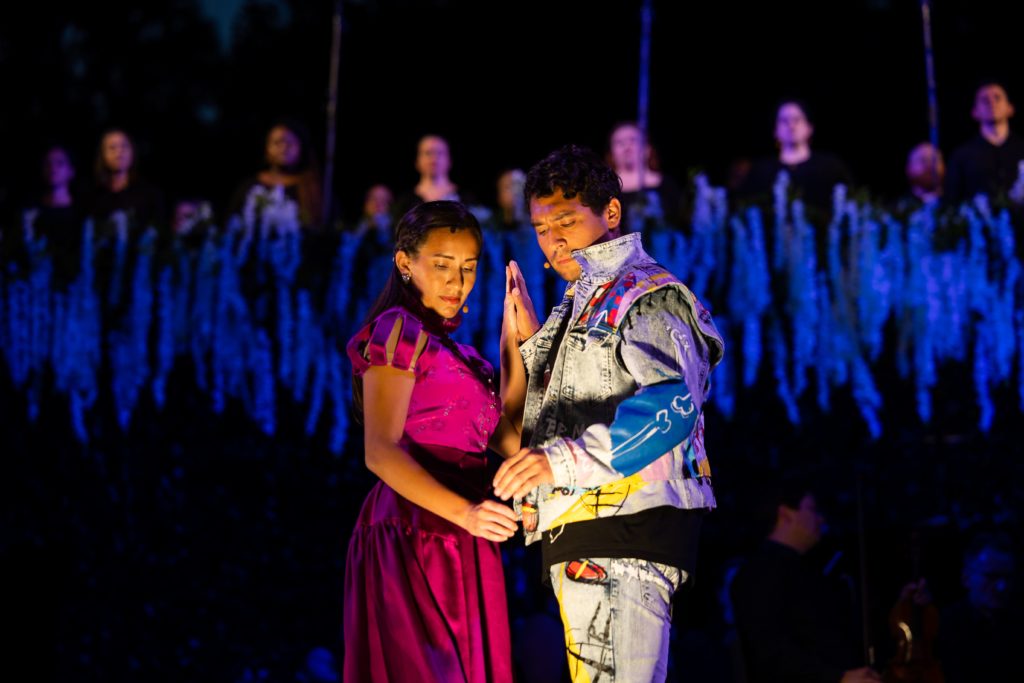
L-R VANESSA BECERRA AND RICARDO GARCIA AS THE TITLE CHARACTERS IN BLO’S PRODUCTION OF ROMEO & JULIET.
Photo by Nile Scott.
Presented by Boston Lyric Opera
In partnership with Commonwealth Shakespeare Company
Music by Charles Gounod
Libretto by Jules Barbier & Michel Carré, after William Shakespeare
English text by Edmund Tracy
Performance edition by David Angus, Steven Maler and John Conklin
Conducted by David Angus
Directed by Steven Maler
Dramaturgy by John Conklin
Choreography by Victoria L. Awkward
Fight direction by Nile Hawver
The Playbill
For Accessibility Information and Questions, BLO Audience Services can be reached at 617.542.6772 or boxoffice@blo.org.
FREE on the Boston Common
Thursday, August 11, 2022 at 8PM
Saturday, August 13, 2022 at 8PM
Performed on the Commonwealth Shakespeare Company stage
139 Tremont Street
Boston, MA 02111
Total run time, including one intermission, is two hours.
Sung in English with English supertitles.
Critique by Kitty Drexel
BOSTON, Mass. — BLO’s Romeo & Juliet remixes the French opera by Gounod and Barbier & Carré with the original Shakespeare play of the same name. The BLO production is successful as an opera for the masses and as fan art of the original. Diehard opera fans may find fault in this original production, but the open-minded will find a lot to love.
Dwellers who live ‘neath the rocks can find the Rome & Juliet synopsis here: https://blo.org/romeo-juliet/. To sum up, Romeo and Juliet are two crazy kids who fall in love at a party. Then, because they snog instead of talking, they die. Love is hard.
Boston Lyric Opera reduces the five-act opera to a merciful two. Score editors David Angus, Steven Maler, and John Conklin added two speaking actors (Ed Hoopman and Cheryl D. Singleton who were fantastic.) to the usual vocalists and supernumeraries to Gounod’s opera who read expositional text from Shakespeare’s play. The result is an opera/play hybrid that works: we still hear famous music from the opera that showcases the vocalists’ talents; the play hits all the important plot points (and deaths) and avoids a extra-lengthy visit to the Common. Continue reading
